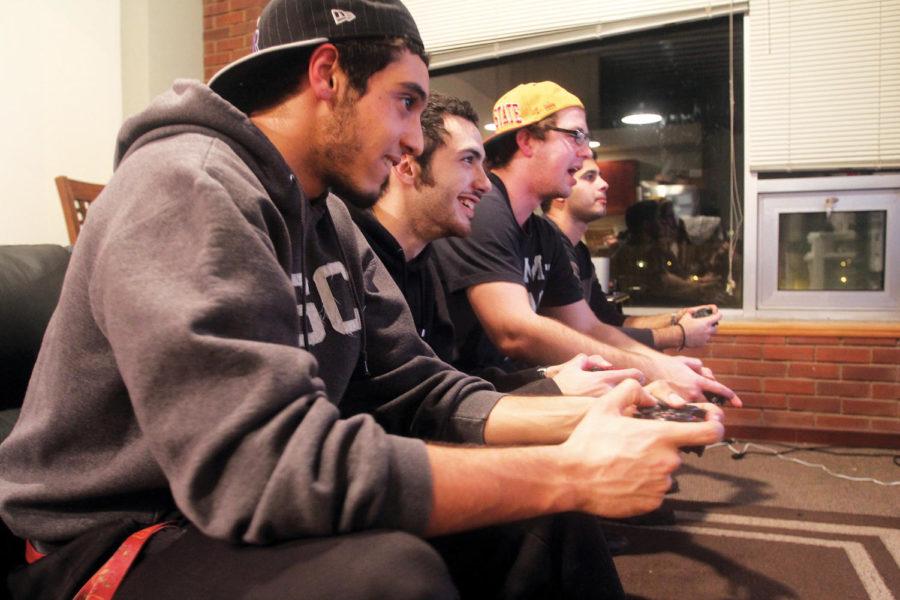Letter to the editor: Don’t blame video games for violent behaviors
Photo: Suhaib Tawil/ Iowa State Daily
Students play “Call of Duty” on Saturday, Jan. 26, which is one of the simulated violence video games under fire. All video games are protected under the First Amendment, but some people still believe there should be stricter regulations.
November 18, 2013
Statistics show that the majority of American family homes purchase and play video games, and a theory I’ve been hearing too much about suggests that these games are capable of promoting various actions in their viewers.
Whether you play video games or not, can you imagine that a child would feel efficient with agriculture simply because they have played a simulated farming game? Can you be led to believe that a teenager is capable of arming and firing a high-caliber weapon simply because they have witnessed a simulated soldier do so?
Next, can you conceive that an individual can become capable of murdering another human being because they have experienced this scenario in a virtual world of graphics and programming?
For those who are quick to offer blame or know little of the ongoing debate, I want to explicitly state that spontaneous violence cannot be solely based on video games played by an individual. If they must be classified, video games may be called only stimulants for a previously established condition of mind.
They do not instigate erratic behavior in our youth — period — and I believe that readers need to be made aware of the facts.
First off, I believe that readers need to understand the resources available for evaluating video game content. One such resource is the Entertainment Software Rating Board; they assign age and content ratings to assist customers in knowing a video game’s content and have been helping consumers, including parents, with their buying decisions for almost 20 years.
Ratings from the rating board are shown directly on the case of any and all games, and in 2009, a study on the its rating system by the Federal Trade Commission found that 87 percent of parents were satisfied with the system and frequently employed it in their buying decisions.
With this information, how can we ethically blame video games when we also admit to both understand and agree with the rating system that exists to educate us?
This could lead into a discussion of parents and their obligation to defend their children from the effects of explicit stimulants. How can we consciously lay the blame of youth violence on video games when it is widely known that parents are the controllers of the media reaching the youth to begin with?
My greatest point of discord concerning this nationwide disagreement is my belief in personal liability for one’s actions. Can we believe that an individual can become incapable of differentiating between reality and fantasy after immersion into a video game?
To answer this question, we turn to the scientific and quantitative side of the issue. In an experiment using functional magnetic resonance imaging, scientists hoped to tell if the brain underwent deprivation of the ability to reason between real and fake when taking part in violent video games, and their results indicated that this inherent ability to separate fantasy and reality was not at all hindered.
This information imparts us with the evidence necessary to determine that an individual is fully accountable for their actions even after the practice of violent video games.
Claims have been made and refuted repeatedly that video game use results in aggressive behavior in its consumers; however, excessive information also exists that negates the idea that video games are wholly indicted for youth violence.
If we do not educate our community, the problem will only continue to grow out of hand, and instead of searching for the true cause of our problem, we will simply continue lashing out on a form of media that does not deserve the brunt of our blame.







